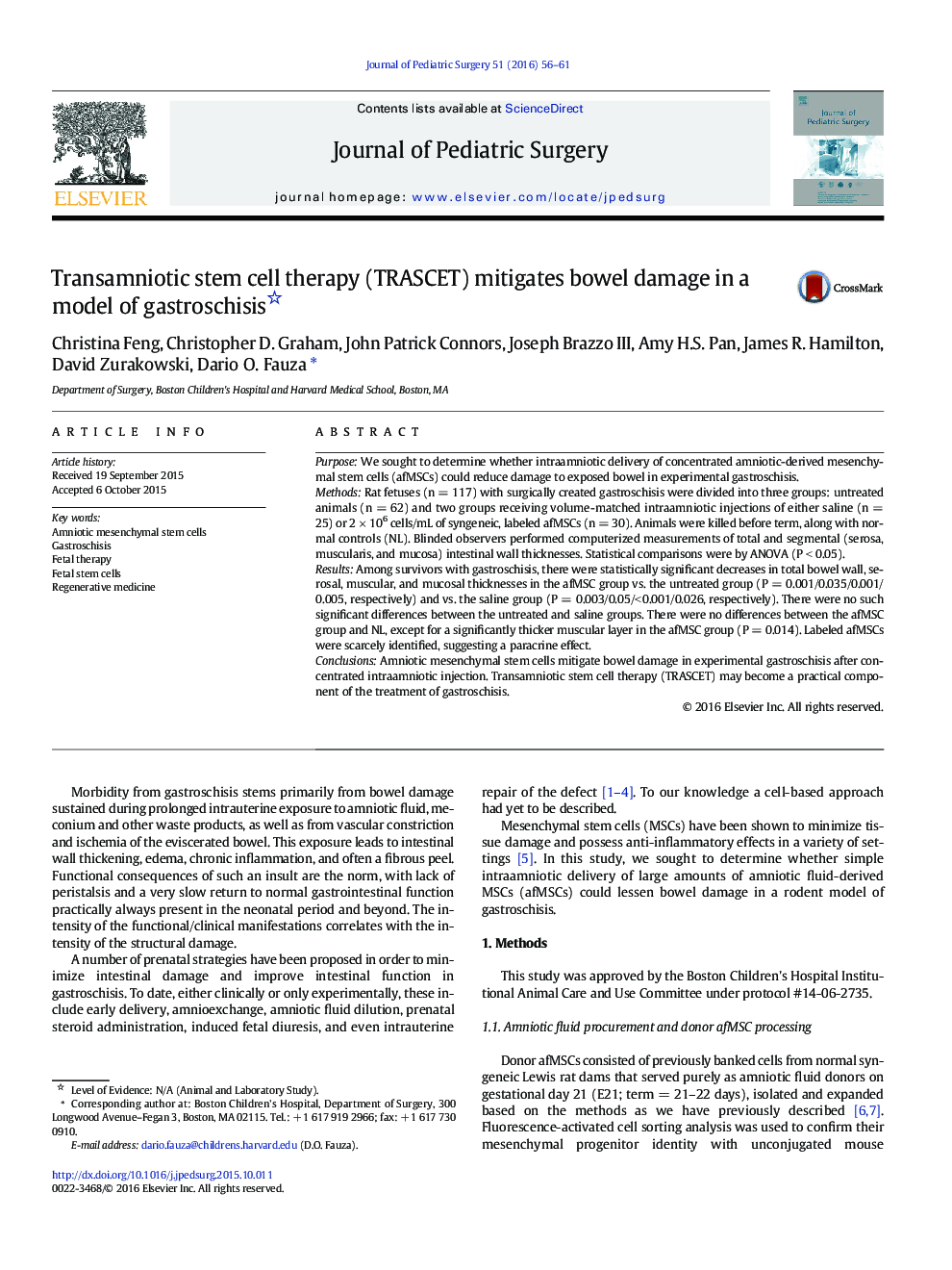| کد مقاله | کد نشریه | سال انتشار | مقاله انگلیسی | نسخه تمام متن |
|---|---|---|---|---|
| 4154865 | 1273729 | 2016 | 6 صفحه PDF | دانلود رایگان |

PurposeWe sought to determine whether intraamniotic delivery of concentrated amniotic-derived mesenchymal stem cells (afMSCs) could reduce damage to exposed bowel in experimental gastroschisis.MethodsRat fetuses (n = 117) with surgically created gastroschisis were divided into three groups: untreated animals (n = 62) and two groups receiving volume-matched intraamniotic injections of either saline (n = 25) or 2 × 106 cells/mL of syngeneic, labeled afMSCs (n = 30). Animals were killed before term, along with normal controls (NL). Blinded observers performed computerized measurements of total and segmental (serosa, muscularis, and mucosa) intestinal wall thicknesses. Statistical comparisons were by ANOVA (P < 0.05).ResultsAmong survivors with gastroschisis, there were statistically significant decreases in total bowel wall, serosal, muscular, and mucosal thicknesses in the afMSC group vs. the untreated group (P = 0.001/0.035/0.001/0.005, respectively) and vs. the saline group (P = 0.003/0.05/< 0.001/0.026, respectively). There were no such significant differences between the untreated and saline groups. There were no differences between the afMSC group and NL, except for a significantly thicker muscular layer in the afMSC group (P = 0.014). Labeled afMSCs were scarcely identified, suggesting a paracrine effect.ConclusionsAmniotic mesenchymal stem cells mitigate bowel damage in experimental gastroschisis after concentrated intraamniotic injection. Transamniotic stem cell therapy (TRASCET) may become a practical component of the treatment of gastroschisis.
Journal: Journal of Pediatric Surgery - Volume 51, Issue 1, January 2016, Pages 56–61